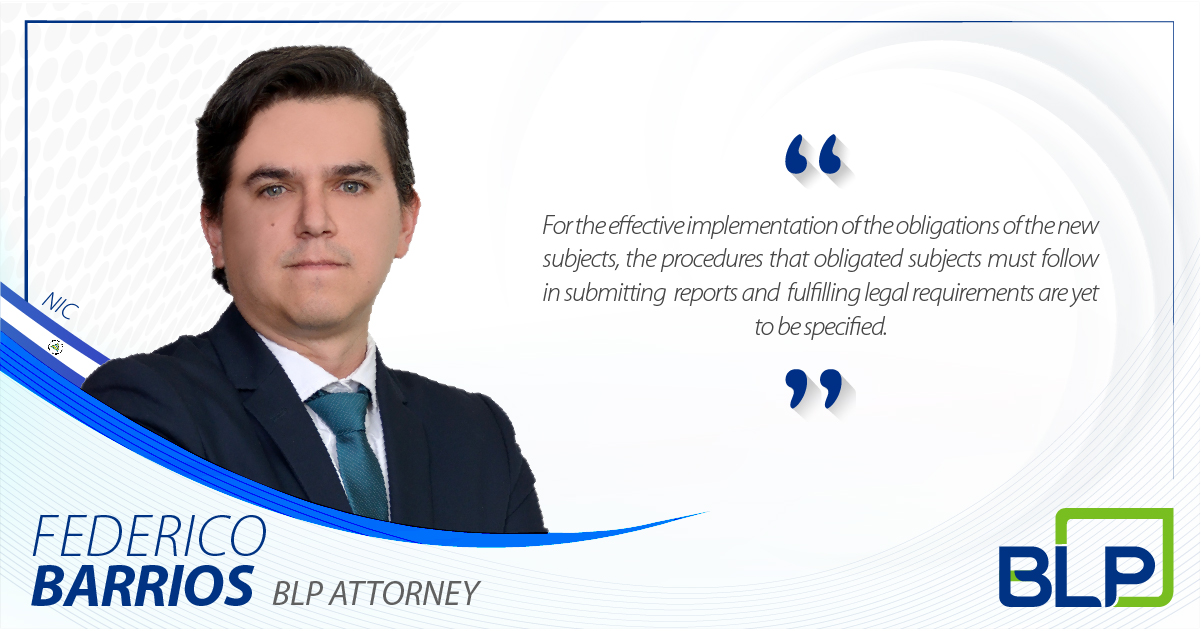On October 7, 2019, the full and amended text of Law 976, Law of the Financial Analysis Unit, was published. The reform was carried out by law 1,002 that was published on September 13 and follows the same policy line as Law 977, Law Against Money Laundering, passed a month earlier.
This new reform closes the circle of specific laws that should be updated to include Lawyers and Notaries Public as Obliged Subjects before the Financial Analysis Unit (UAF). For the effective implementation of the obligations of the new subjects, the authorization of regulations or circulars of both the Supreme Court of Justice (CSJ) and the Financial Analysis Unit (UAF) that are still pending are required in order to specify the procedures that obligated subjects must follow in submitting reports and fulfilling legal requirements.
Law 1,002 consists of 5 articles: the first reforms articles 8 and 10, the second adds a numeral to article 8, and the remaining three refer to the prompt reform of the regulation of Law 976.
The amended article 8 emphasizes that lawyers and notaries will make their reports through a specialized body that the Supreme Court of Justice (CSJ) must conform to that effect. The amended article 10 explains that the newly obligated must send to the CSJ any information of unusual operations upon which this authority will prepare and issue reports of suspicious activities to the UAF.
Unusual Operations versus Suspicious Activities
According to the Regulations for the Prevention, Detection and Report of Activities Related to the LA/FT/FP, Unusual Operations are those transactions or activities carried out or attempted that: i) depart from the normal parameters (amount, characteristics or periodicity) according to the profile of each client, ii) does not have a legal basis and iii) generates one or a set of alerts that could be linked to the LA/FT/FP.
On the other hand, paraphrasing the norm and according to the regulations in force, Suspicious Activities are the acts, operations or transactions carried out or attempted whose uses or customs of the activity in question are unusual or devoid of apparent economic or legal justification.
Professional Privilege
Perhaps the most controversial part of the reform is in the addition of section 8 to article 8 of the law, which imposes the obligation to report suspicious transactions and stipulates that the professional privilege of lawyers and notaries should only be kept in regarding the information obtained from clients within the framework of their defense or representation in judicial, administrative, arbitration, or mediation processes.
The wording of this section seems to try to maintain some guarantees for potential clients in the context of judicial or administrative litigation but blurs such protection in the notary sphere and in managerial or business advice. The foregoing notwithstanding, it should be noted that the information a legal professional is authorized to disclose is limited to that which: i) may be linked to the crime of laundering money or related assets, and ii) can only be made through a particular type of report and a defined public institution.



